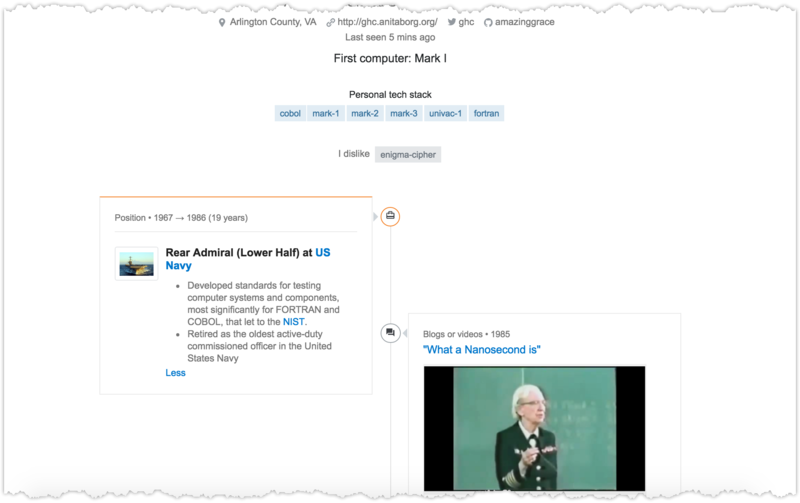
Software developers are programmers, designers and makers, but when looking for a job, they are forced to figure out how to translate their work into words. Stack Overflow wants to change that with the newly announced technical résumé: Developer Story.
“Stack Overflow’s internal mission is really all about helping developers learn, share their knowledge, and level up,” said Jay Hanlon, vice president of community growth at Stack Overflow. “The struggle is how developers convey what they are good at.”
The problem with résumés is that they only really highlight the applicant’s name, where they worked, what their title is, where they went to school, and what their degree was, according to Hanlon. All the work a developer has done and the skills they have get buried.
In addition, in today’s developer world, not everyone comes to the profession in the typical way. According to Stack Overflow’s recent 2016 U.S. Developer Hiring Landscape report, 70% of developers are partly self-taught, and the amount of developers who graduate from boot camps is increasing every year.
U.S. President Barack Obama said it best last year when he launched the TechHire Initiative, stating that it doesn’t matter where developers learned to code, what matters is how good they are at coding. So a résumé should show off how a developer codes—not only where they worked, but what they do on their free time, because a majority of developers spend their free time developing their own projects or contributing to open-source projects, according to Hanlon.
Instead of having skills and projects getting lost in bullet points, Stack Overflow’s Developer Story showcased it by linking to the actual work from GitHub repos, blog posts and even books, allowing developers to show off the work they are most proud of.
“Developer story allows people [to] show versus tell, and encourages highlighting the more valuable information,” said Hanlon. “You can share more of the real tangible things you do day to day.”
But since résumés are so old and ingrained into employers’ ways of scanning prospective employees, Stack Overflow does provide a backward-compatible version of the Developer Story that still highlights the school, and the title, and whatever else you would include in a traditional résumé. Hanlon noted that employers should keep in mind that developers are more than roles, schools and keywords, and sometimes the title developers don’t encompass everything they can do.
“As a developer, you don’t become managing editor. You retain often a title that is not conveying everything you are doing,” said Hanlon.
Even if developers are happy with their job, they can still create a Developer Story and put that they are “open, but not actively looking.” In the 2106 developer survey, 63% of developers revealed they aren’t looking, but they are open to new opportunities. Hanlon said a majority of developers find their next job through recruiters finding jobs that match what they do and contacting them.
Over time, Stack Overflow plans to add more integrations so people can link to more places that they work, and the company hopes Developer Story will act like a social site where you can look at a stories and connect with other developers who share those experiences.
“Developers are makers. You wouldn’t hire a designer based on static words on a page, so why hire a developer that way?” said Hanlon. “The goal of Developer Story is to let developers share whatever it is that best conveys their skills, so we can match them with the companies that need them.”






